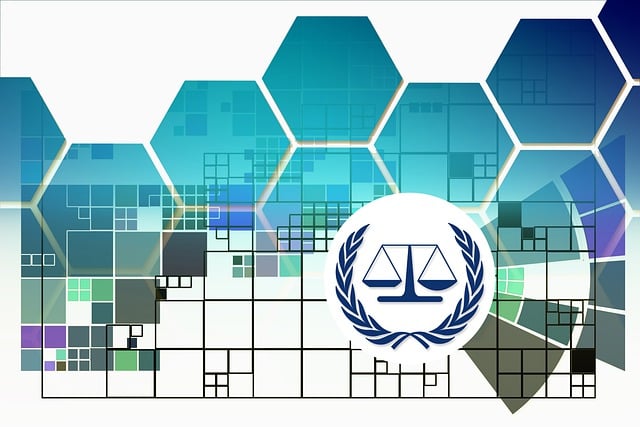Parents have a legal duty to support and care for their children, regardless of relationship status, meeting basic needs and fostering stability. This includes child support, which both parents contribute to, ensuring financial security and well-being. Establishing paternity is crucial for determining responsibilities. Agreements can be modified based on life changes, and enforcement actions exist for non-compliance, prioritizing the child's best interests.
In the intricate web of family law, understanding child support responsibilities and rights is paramount for all parents. This comprehensive guide navigates the essential aspects of legal duties towards children, offering a clear framework for both parents’ guides and financial obligations. From establishing paternity to modifying agreements and enforcing support, we demystify these crucial topics, empowering individuals to manage their legal duties effectively.
- Understanding Legal Duties Towards Children
- Rights and Responsibilities: A Parent's Guide
- Financial Obligations: Child Support Basics
- Establishing Paternity: Key Considerations
- Modifying Agreements: When and Why
- Enforcing Support: Options and Resources
Understanding Legal Duties Towards Children

Parents have a fundamental legal duty to provide support and care for their children, regardless of relationship status. This responsibility extends beyond financial means and encompasses both physical and emotional well-being. Understanding these legal duties support is crucial for ensuring every child receives the sustenance they need to thrive.
Parental obligations include meeting basic needs such as food, shelter, clothing, education, and healthcare. Additionally, parents are responsible for fostering a stable and nurturing environment, promoting healthy development, and maintaining open lines of communication. These duties persist even in cases of separation or divorce, with child support arrangements providing a structured framework to guarantee the child’s financial security.
Rights and Responsibilities: A Parent's Guide

As a parent, understanding your rights and responsibilities regarding child support is crucial for ensuring a stable future for your child. In many jurisdictions, both parents have a legal duty to contribute to their child’s financial needs. This obligation extends beyond simple monetary contributions; it includes a responsibility to prioritize your child’s well-being and development.
Knowing your rights empowers you to advocate for your child and ensure fairness in any support arrangements. It also encourages open communication with the other parent, fostering a collaborative environment that benefits everyone involved. Parents have the right to seek legal guidance to clarify these duties, ensuring they are met in accordance with the law, and facilitating a harmonious relationship focused on the best interests of the child.
Financial Obligations: Child Support Basics

Child support is a crucial aspect of family law, outlining the financial obligations and rights of parents toward their children. It’s essential to understand that both parents have legal duties to contribute to their child’s well-being, even after separation or divorce. The primary focus is on ensuring the child’s basic needs are met, including food, clothing, shelter, and education.
The amount of child support is typically determined by a variety of factors, such as the time each parent spends with the child, income levels, and the specific needs of the child. This financial arrangement provides stability and predictability, allowing parents to collaborate effectively in raising their children. By fulfilling these legal duties, both parents contribute equally to the child’s future, fostering a sense of security and continuity.
Establishing Paternity: Key Considerations

Establishing paternity is a fundamental step in determining child support responsibilities and rights. It involves legally recognizing the biological father, which triggers specific legal duties related to financial support for the child. This process is crucial as it ensures that both parents contribute to the child’s well-being and future financial security. Key considerations include voluntary acknowledgment of paternity or, if uncertain, undergoing DNA testing to establish a definitive biological link.
The legal implications of establishing paternity are far-reaching. It not only clarifies support obligations but also grants certain rights, such as visitation and decision-making privileges, to the non-custodial parent. This framework promotes stability and fairness in family structures, especially in cases where parents may have separated or never been married.
Modifying Agreements: When and Why

Modifying agreements for child support are often necessary when circumstances change, reflecting the evolving needs and dynamics of both parents and their dependent children. These adjustments can be initiated when a parent experiences significant life alterations, such as job loss, relocation, or increased financial obligations. For instance, if one parent’s income decreases substantially, a modification might be sought to align support payments with the new financial reality. Conversely, if a parent’s income increases, they may propose a revision to ensure fairer contribution towards the child’s upbringing.
Legal duties of support demand flexibility and adaptability to accommodate these shifts, ensuring that children remain adequately supported despite changes in their parents’ lives. Such modifications aim to maintain a balanced and just arrangement, promoting the well-being of the child while considering the legal responsibilities of both parents.
Enforcing Support: Options and Resources

In cases where child support agreements are not met, there are several options available for enforcing these legal duties. Parents can initiate the process by directly communicating with the non-custodial parent and reaching a mutual understanding or agreement to comply. This approach encourages collaboration and self-enforcement.
Should this fail, or in instances of willful disregard, involved parties can seek assistance from relevant child support enforcement agencies. These entities have the authority to investigate, collect unpaid support, and take further actions such as wage garnishments, driver’s license suspensions, or even tax refunds offsets to ensure the financial obligations are met. Their resources aim to protect the best interests of the child by ensuring regular contributions for their well-being.






